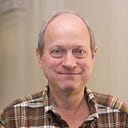Feynman’s Three Papers Related to Quantum Computing
Mention Feynman’s paper on quantum computing, and most people will immediately presume that you mean his 1982 paper on Simulating physics with computers, but he had two other foundational papers that at least loosely related to or associated with quantum computing. This short informal paper, a short note really, provides a convenient citation of all three of Feynman’s papers at least loosely related to or associated with quantum computing.
Please note that although these papers are certainly of historical interest, of interest to deep technologists such as myself, and even to physicists to some degree, they really aren’t terribly useful to most people who are just trying to learn about quantum computing, or even to those technical professionals seeking to design quantum algorithms or develop quantum applications.
Without further ado, here are the three papers. First I give the most convenient links for most people to immediately read the papers, via PDF, and later I provide the formal links to the actual publications.
- 1960: There’s Plenty of Room at the Bottom.
Main focus is on what we now call nanotechnology — making machines, including cars and computers, down at the atomic level. No mention or hint of quantum computers. The original intent was focused on encouraging budding scientists to pursue a career in physics — elaborating on the potential for progress down at the atomic level. Interesting for physicists, but of little value to anyone else. This was originally a talk given in 1959.
https://calteches.library.caltech.edu/1976/1/1960Bottom.pdf - 1982: Simulating physics with computers.
This is the main Feynman paper on quantum computing that most people refer to. More of an abstract view on simulation of physics and what’s needed to deal with simulating quantum effects. No detail on what a quantum computer or quantum algorithm would actually look like — see his 1985 paper for that. No mention of qubits or gates. Primarily of interest to physicists or those wanting a deeper background on quantum computing, but of little value to those interested in non-physics applications of quantum computers. This was originally a keynote speech in 1981.
https://s2.smu.edu/~mitch/class/5395/papers/feynman-quantum-1981.pdf - 1985: Quantum Mechanical Computers.
Unlike his 1982 paper, this one focuses on more of the details of how a quantum computer would work and how quantum algorithms would be designed. Still no mention of qubits or gates — see Schumacher’s paper below. Interesting as a historical footnote, but not as a useful introduction to quantum computing.
Published in Optics News.
https://www.optica-opn.org/opn/media/Images/PDFs/11557_23417_110730.pdf
The links to the publication pages:
- 1960: There’s Plenty of Room at the Bottom.
https://resolver.caltech.edu/CaltechES:23.5.1960Bottom - 1982: Simulating physics with computers.
https://doi.org/10.1007/BF02650179 - 1985: Quantum Mechanical Computers.
https://www.optica-opn.org/home/articles/on/volume_11/issue_2/features/quantum_mechanical_computers/
His 1985 paper was also republished in 1986 in Foundations of Physics — after being published in Optics News in 1985 — and was originally presented as a plenary talk at the CLEO/IQEC Meeting in 1984:
- Quantum mechanical computers
- Foundations of Physics
- Published: June 1986
- https://doi.org/10.1007/BF01886518
- https://link.springer.com/article/10.1007/BF01886518
Peter Shor’s tribute to Feyman’s 1985 paper:
- 35 years ago today, Richard Feynman’s paper “Quantum Mechanical Computers” was published in 𝘖𝘱𝘵𝘪𝘤𝘴 𝘕𝘦𝘸𝘴. I think he’d be surprised and gratified to see everything that his original idea has led to.
- Peter Shor
- @PeterShor1
- 2:29 PM · Feb 1, 2020
- https://twitter.com/PeterShor1/status/1223689829310959616
No, Feynman didn’t coin the term qubit, so who did?
In his 1985 paper, Feynman refers to atoms rather than qubits. He doesn’t mention qubits in any of these three papers.
According to the Wikipedia Qubit page:
- The coining of the term qubit is attributed to Benjamin Schumacher. In the acknowledgments of his 1995 paper, Schumacher states that the term qubit was created in jest during a conversation with William Wootters.
- https://en.wikipedia.org/wiki/Qubit
Schumacher’s paper:
- ACKNOWLEDGEMENTS
- The term “qubit” was coined in jest during one of the author’s many intriguing and valuable conversations with W. K. Wootters, and became the initial impetus for this work.
- Quantum coding
- Benjamin Schumacher
- Phys. Rev. A 51, 2738
- Published 1 April 1995
- https://doi.org/10.1103/physreva.51.2738
- https://journals.aps.org/pra/abstract/10.1103/PhysRevA.51.2738
- http://web.mit.edu/6.962/www/www_spring_2001/yonina/schumacher.pdf
For more of my writing: List of My Papers on Quantum Computing.
